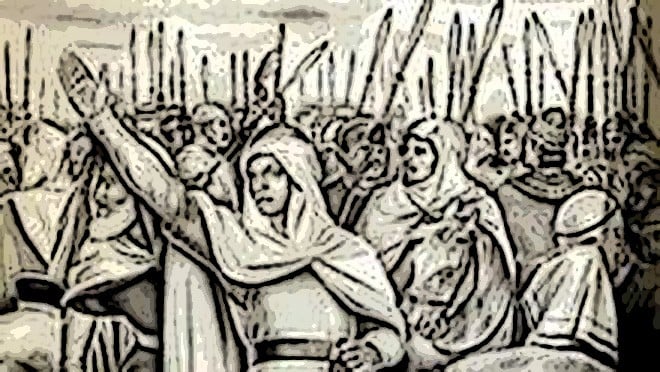
Where does Pakistan’s history begin -- 712 AD or 1857 or 1947?

"The real problem with you historians is your obsession with the past, instead of looking into the present or the future; you people are stuck with the practices of yore," observed one of the icons of Pakistani civil service as he responded to my analysis of the Muslim world and its inability to meet the challenges that modernity poses.
He got flustered when I cautiously submitted to him that every action in the present is authenticated by reference to the past. Anything undertaken by the humans in space and time draws validity from a situation that exists in history. Thus the ‘present’as well as the ‘future’ squarely hinge on the past, making it a vital subject of human study.
In simpler terms, the exigencies of the present cannot be understood, and planning for the future is utterly futile, if not meticulously historicised. The collective human memory is stored only in the annals of history. If the collective human memory fades, as was once argued by none other than Arnold Toynbee, the author of monumental The Study of History, the whole world with all its intellectual feats will be turned upside down.
Given the peculiar position Pakistani intelligentsia is in with respect to Pakistan’s history, indifference to history becomes understandable. Where does Pakistan’s history begin -- 712 AD or 1857 or 1947?
If one looked at the works of Shaikh Muhammad Ikram or Ishtiaq Hussain Qureshi, the two historians who delineated the discourse of Pakistani history, ambiguity about the beginning of Pakistan’s history stares at one in the face. The texts produced by both Ikram and Qureshi trace the origin of the South Asian Muslim state to the advent of Muhammad bin Qasim. By doing so, they severed one historical epoch from another -- because, the history of the region(s) constituting Pakistan started off in the medieval period. Thereby, the two deny the people inhabiting this region their respective histories preceding the year 712 AD.
However, the succeeding generation of Pakistani historians has balked at going into the debate regarding the beginning of Pakistani history. Instead, they have opted to observe reticence on the issue. The primary focus of their scholarship is thus circumscribed to the post-1857 period, harking back to the pre-war of Independence period only by default.
For the last four decades, the medieval history that deals with Muslim political rule in India has not attracted much scholarly attention which is indicative of the limiting spectrum of Pakistani historiography.
The Ikram-Quershi duo divested us of our ancient past. But the historians of the subsequent generation have gone even further and applied an Ockham’s razor to what remained of our history and reduced it down to around 150 years.
Apart from the fact that medieval Muslim history has its centre in Northern India, a region beyond the geographical confines of Pakistan, the areas constituting Pakistan have been and still are out of the historical purview of our scholarship. Regional and sub-regional histories are yet to be properly written.
The history of various cultural groups must be given currency. It may prove vital for national integration -- as it is only through ‘history’ the agenda of national integration is achieved. The irony, in fact, is that in our historical sensibility as Pakistanis, the divergence between history and geography is succinctly manifest. Without one, the other is rendered meaningless and is thereby made into a mere abstraction. Unless both branches of knowledge come to complement each other, no group of humans can enjoy socio-cultural camaraderie, a pre-condition for nation building.
In our case, the history of the South Asian region is conjoined with geography of the Arabian Peninsula that has resulted in intellectual obfuscation of sorts. Another obvious result is that history ceases to exist as an ongoing process of socio-political development; instead, it is reduced to a pack of slogans and aphorisms. As a consequence, history is viewed as the business of non-serious people.
Some people have been quite critical of Dr Moeen Azfar, a medieval historian at the University of Austin, Texas, just because he made a brave choice of switching over to history from engineering (in which he holds a bachelor’s degree). To the majority of the Pakistani educated class, nations can progress only through technology. To them, even science undergirded by theory is an absolutely superfluous undertaking. One who abandons quite a ‘promising’ career -- that of engineering -- for a discipline like history is guilty of committing an unpardonable sin.
The obsession of Pakistani policy-makers with technology as a panacea for the countless problems that Pakistan is beset with is as old as Pakistan itself. Even during the Ziaul Haq era, the notion that technological breakthroughs might redeem the state was in commonplace. When asked about the social sciences and the role these disciplines play in the sustenance of societies and states, the simplistic answer was in the presence of religious texts (Quran and Hadith) why should we bother to invest our energies and resources on such subjects.
Although the Zia era has vanished into the mists of time, the ideas and notions of that era obdurately persist, to our bad luck!